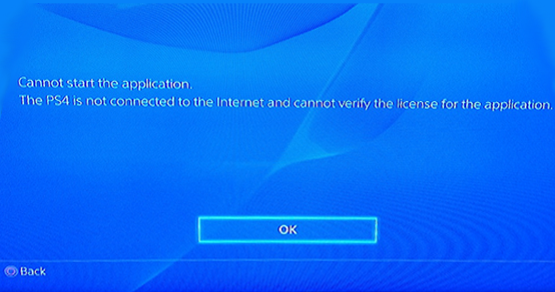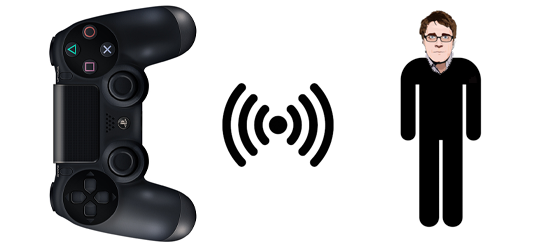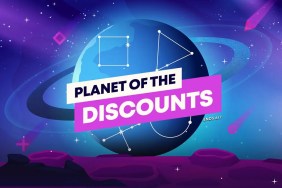DRM, or digital rights management, is a means of protecting copyright holders’ digital properties, and is often employed where any digital hardware or software is concerned. In the gaming sector, we see a lot of forms of DRM, as well as the opposition to it, and Daily Reaction is examining both sides.
Chandler: Digital media is not a physical thing (hence why it is called digital media). Nope, even that disc you bought isn’t actually the game. It’s simply a vehicle to get you the code for the game so that you can play it. You are merely being granted a license to play the title, and the DRM check that happens with physical media is the fact that you have to have the disc, otherwise you can’t play it. One disc per player. Purely digital media downloaded straight to your console is a bit more difficult to limit, but has become the subject of some dissention among gamers.
As an account holder, I buy licenses to games that I download and play on my primary PS4. If I am to log into my account on a second PS4, I can download those games and play them as long as my account is logged into PS4 number two. Another account on PS4 number two can also play those games as long as I am logged in, but the content is locked for them as soon as I log out. However, any account on my primary PS4 can play any of my games without it being locked. This is to prevent gamesharing, which many people did last generation on the PS3, where they would log their accounts in and download all of their friends games and then have free access to them.
Understandably, people are upset at this limitation. DRM locks down accounts, can cause some issues if there are any bugs or hiccups, and of course, means that people now have a harder time pirating or gamesharing, both things that don’t give proper credit where it is due if you partake in an experience: the developers.
Don’t get me wrong, I do think the PS4’s DRM is a little bit too tight. Having two of these consoles in the house, it makes it harder for my wife and I to partake in digital games. There has to be some creative determining which one gets to be our primary PS4 and vice-versa. I understand wanting us both to pay if we will be playing a game at the same time, but I do wish that the lock on a license would only be present if I was playing that game already, so that we couldn’t play the same game at the same time. Otherwise, it is just like lending it a physical copy.
Thinking back a bit, Microsoft actually originally had this kind of idea with the Xbox One, where it would allow you to “lend out” your game licenses to friends and family, similar to how you would lend out a disc copy of a game, but the outrage sparked by the online requirements for such a feat led them to backpedal on that idea. Sony could implement this idea even without requiring online.
Simply make the game license lock for the secondary player unless they are connected to the internet, and then do a quick check to see if the primary license holder is already playing the game. If not, secondary player gets an unlocked license, and we all get the ability to “share” and “lend out” digital licenses, without overt reduplication of a game that could almost be akin to piracy. A bit of a win-win for everyone really, and that level of compromise between content creators and the gamers is what we really need to focus on.

Dan: Well, I think there is definitely a ton of improvement that can be done on the development side of DRM, as there are a number of issues that can pop up to keep people from using their paid for content. This is especially becoming more of an issue as we are involving more and more methods to actually utilize digital media across varying types of hardware, so tracking who is authorized to use what can cause a laundry list of problems.
This is probably why most people simply think that because software pirates will find a way around DRM, there is no need for it, as it will only harm the legitimate end user. While I do think there is some merit to this ideology, I think there is also a great bias and misunderstanding of what ownership means in the digital era that gets people to think they are entitled to do as they please.
Exactly as Chandler has already spelled out, when you purchase a product, such as a video game or a movie, you are simply getting a license to use it on in a specific manner legally. This is why when a game gets moved onto a new platform, you have no rights to obtain usage of it, unless it was otherwise stated in the initial transaction, since you do not own the game. This unclear concept of what it means to be a registered user I think is the fault of publishers, as it can be just as difficult to understand where licences are sitting and what you can do with for most products as a user, as it can be for a publisher, but you are the one using it.
With the evolution of gaming, and the expansion of the internet, tracking a product becomes easier, as you get the ‘always online’ style of gameplay, something that becomes also misunderstood as forced DRM. Some games require an online experience to drive the style of gameplay they’re trying to give to their users, and some limitations will naturally be a part of that. Oddly enough, is an argument that I have been hearing, as some gamers believe that every product could be offline, and be the same. This simply isn’t true, as each experience is designed to be one way, and with online based products, that usually involves the interaction of other players to populate the world.
DRM as a whole is a concept that gets a completely bad rap, and as I have said, it isn’t perfect, and can be abused, but I do think it is necessary on some levels. Many people think that people will pay as long as something is easily accessible, and generally point to the music industry as an example. But, when we account for costs, people will be more likely to cut a corner to save $60 than to save $0.99, which makes the comparison a bit inaccurate.
The idea that we can, and should be able use a product how ever we see fit without any DRM does lead to problems that I don’t think many people understand from an end-user side of things. How many games have been cut to shreds online because users are having a poor experience with it, but at the same time, other people are having no issues at all. The idea of an uncontrolled environment for people to experience something creates a market that can be filled with inaccurate experiences, and will cause false information to spread, potentially wrongfully destroying a product’s brand.
Overall, I think DRM is still young, and is there for a purpose. So if we want to see it change into something that works, try telling publishers how you want to use their products instead of screaming at them and maybe, just maybe they can make it happen.
What would be your compromise for DRM? Are increasingly online focused games just hiding digital verification? Let us know in the comments below, or follow our unverified selves on Twitter @Foolsjoker and @Finchstrife, and have your message authenticated at DailyReaction@PlayStationLifeStyle.net.
For more interesting Daily Reaction articles, make sure to click here.








